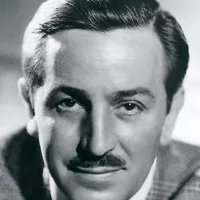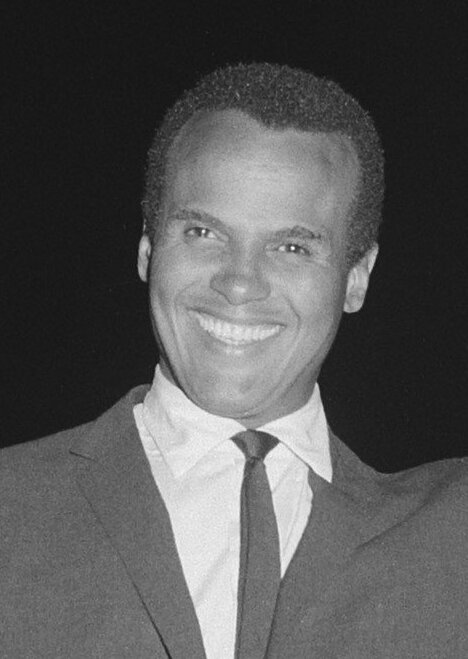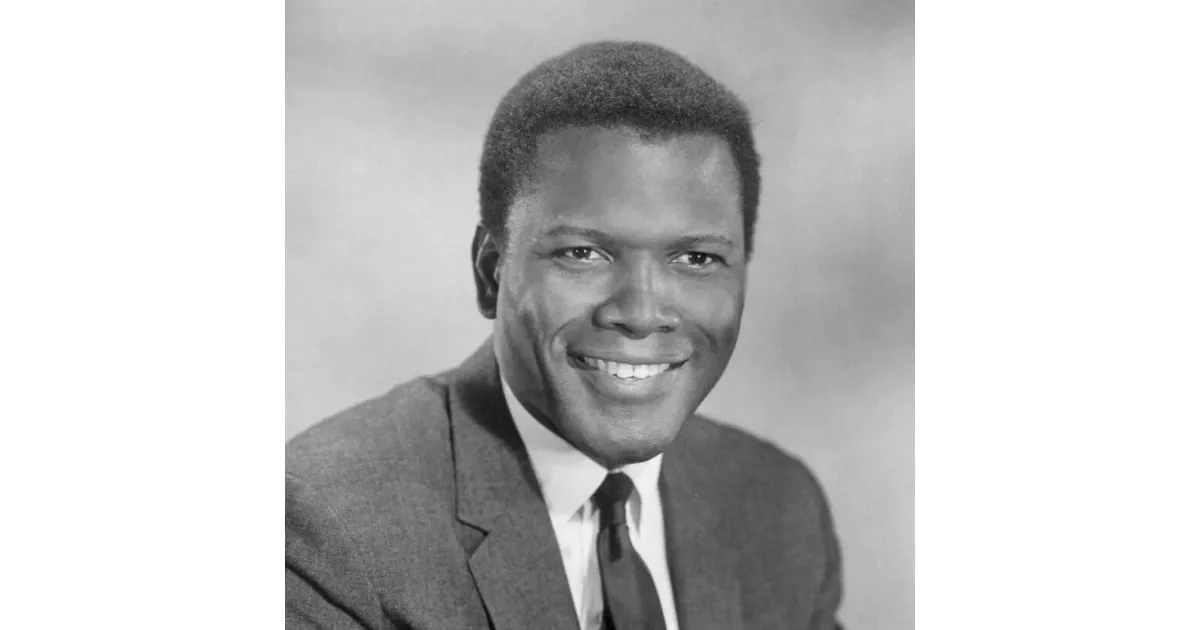Sidney Poitier was a trailblazing Bahamian-American actor, director, activist, and diplomat, renowned as the first African-American to win the Academy Award for Best Actor in 1964. His distinguished career garnered numerous accolades, including two Golden Globe Awards, a BAFTA Award, and a Grammy Award. He was recognized by the American Film Institute as one of the greatest screen legends. Poitier's impact extended beyond entertainment, as he served as a significant figure in the fight for civil rights and equality during the Golden Age of Hollywood.
February 20, 1927: Sidney Poitier's Birth
On February 20, 1927, Sidney Poitier was born. He later became a Bahamian-American actor, film director, activist, and diplomat.
1940: Hattie McDaniel Nomination
In 1940, Hattie McDaniel was nominated for an Academy Award.
1942: Release of Roxie Hart
In 1942, William Wellman previously directed the famous Roxie Hart, a film that predates Sidney Poitier's association with Wellman.
1942: Moved to Miami
In 1942, at the age of fifteen, Sidney Poitier was sent to Miami to live with his brother's family.
November 1943: Enlistment in the Army
In November 1943, Sidney Poitier enlisted in the Army during World War II, falsely stating his age.
December 1944: Discharge from the Army
In December 1944, Sidney Poitier received a discharge from the Army under Section VIII of Army regulation 615–360 after feigning mental illness and confessing it to a psychiatrist.
1947: Founding Member of the Committee for the Negro in the Arts
In 1947, Sidney Poitier was a founding member of the Committee for the Negro in the Arts (CNA).
1947: Release of Magic Town
In 1947, William Wellman previously directed the film Magic Town, a film that predates Sidney Poitier's association with Wellman.
1949: Choice between Stage and Film
In late 1949, Sidney Poitier faced a decision between leading roles on stage and an offer to work in the film No Way Out.
April 29, 1950: Married Juanita Hardy
On April 29, 1950, Sidney Poitier married Juanita Hardy, his first wife.
1950: Performance in No Way Out
In 1950, Sidney Poitier's performance in No Way Out garnered attention and led to more prominent roles.
1951: Filming Cry, the Beloved Country in South Africa
In 1951, Sidney Poitier traveled to South Africa with Canada Lee to star in the film version of Cry, the Beloved Country.
1952: Narrator for Negro History Festival
In 1952, Sidney Poitier served as one of the narrators in a pageant written by Alice Childress and Lorraine Hansberry for the Negro History Festival.
1954: Dorothy Dandridge Nomination
In 1954, Dorothy Dandridge was nominated for an Academy Award.
1954: Association Leading to Blacklisting
In 1954, Sidney Poitier's associations led to the blacklisting of Alfred Palca, the writer and producer of Go Man Go.
1955: Breakthrough Role in Blackboard Jungle
In 1955, Sidney Poitier landed his breakthrough film role as a high school student in the film Blackboard Jungle.
1955: Role in Blackboard Jungle
In 1955, Sidney Poitier played Gregory W. Miller in Blackboard Jungle, continuing his distinction in film roles.
1955: Refusal to Sign Loyalty Oath
In 1955, Sidney Poitier refused to sign a loyalty oath in connection with his prospective role in Blackboard Jungle.
1956: Moved to Mount Vernon, NY
In 1956, Sidney Poitier became a resident of Mount Vernon in Westchester County, New York.
1956: Working on Good-bye, My Lady
In 1956, Sidney Poitier enjoyed working with director William Wellman on Good-bye, My Lady.
1957: Performance in Edge of the City
In 1957, Sidney Poitier's performance in Edge of the City was critically acclaimed and propelled him towards stardom.
1958: First Black Male Nominee for Academy Award
In 1958, Sidney Poitier became the first Black male actor to be nominated for an Academy Award.
1958: Academy Award Nomination for The Defiant Ones
In 1958, Sidney Poitier received an Academy Award nomination for Best Actor for The Defiant Ones, marking the first time an African American was nominated in a lead role. Poitier also won the Silver Bear for Best Actor for that performance.
1958: Starring in The Defiant Ones
In 1958, Sidney Poitier starred alongside Tony Curtis in The Defiant Ones, receiving critical acclaim and an Academy Award nomination, marking him as the first African-American actor nominated in a lead role.
1959: A Raisin in the Sun and Porgy and Bess
In 1959, Sidney Poitier acted in the first production of A Raisin in the Sun on Broadway and starred in the film adaptation of Porgy and Bess.
1959: Affair with Diahann Carroll
In 1959, Sidney Poitier began a nine-year affair with actress Diahann Carroll.
1959: Starring in Porgy and Bess
In 1959, Sidney Poitier starred in Porgy and Bess, continuing his trend of playing strong leading African American male roles.
1960: Golden Globe Nomination
In 1960, Sidney Poitier received a Golden Globe Award nomination for Best Actor in a Motion Picture Musical or Comedy for his performance in Porgy and Bess.
1961: Starring in A Raisin in the Sun
In 1961, Sidney Poitier starred in A Raisin in the Sun, portraying another strong leading African American male role.
1961: Starred in film adaptation of A Raisin in the Sun and Paris Blues
In 1961, Sidney Poitier starred in the film adaptation of A Raisin in the Sun and Paris Blues alongside Paul Newman, Joanne Woodward, Louis Armstrong, and Diahann Carroll. For A Raisin in the Sun, Poitier received another Golden Globe Award nomination.
1963: Won Best Actor Oscar
In 1963, Sidney Poitier became the first Black actor to win the Academy Award for Best Actor, for his role in "Lilies of the Field".
1963: Leading Role in Lilies of the Field
In 1963, Sidney Poitier played the leading role in the film "Lilies of the Field", a role that would earn him significant recognition and awards.
1963: Won Academy Award for Lilies of the Field
In 1963, Sidney Poitier starred in Lilies of the Field. For this role, he won the Academy Award for Best Actor and became the first African-American to win the award in a leading role.
1964: Academy Award Win
In 1964, Sidney Poitier became the first African-American actor and first Bahamian to win the Academy Award for Best Actor.
1964: Poitier Meets Plato album
In 1964, Sidney Poitier recorded an album with the composer Fred Katz called Poitier Meets Plato, in which Poitier recites passages from Plato's writings.
1964: Academy Award and Golden Globe Win for Lilies of the Field
In 1964, Sidney Poitier won the Academy Award and the Golden Globe for Best Actor for Lilies of the Field (1963).
1965: Divorced Juanita Hardy
In 1965, Sidney Poitier and Juanita Hardy divorced.
1965: Roles in various films
In 1965, Sidney Poitier performed in The Bedford Incident, The Greatest Story Ever Told, and A Patch of Blue.
1965: Starring in A Patch of Blue
In 1965, Sidney Poitier starred in A Patch of Blue, further solidifying his presence in prominent roles.
1966: Turned down Othello role
In 1966, Sidney Poitier turned down an opportunity to play the lead in an NBC television production of Othello, due to concerns about being typecast and wanting to set a positive example.
June 12, 1967: Interracial marriage legality landmark
On June 12, 1967, six months before the release of Guess Who's Coming to Dinner, interracial marriage was still illegal in 17 states until this date.
1967: Starring in films tackling race relations
In 1967, Sidney Poitier acted in three films - To Sir, with Love; Guess Who's Coming to Dinner, and In the Heat of the Night - that addressed race and race relations.
1967: Starring in In the Heat of the Night
In 1967, Sidney Poitier played Virgil Tibbs in In the Heat of the Night, receiving critical acclaim and Golden Globe and British Academy Film Award nominations.
1967: Commercial peak of career
In 1967, Sidney Poitier reached the commercial peak of his career, starring in three popular films: To Sir, with Love, In the Heat of the Night, and Guess Who's Coming to Dinner.
1969: Starred in The Lost Man
In 1969, Sidney Poitier starred in "The Lost Man" with Joanna Shimkus.
1970: Sequel: They Call Me Mister Tibbs!
In 1970, Sidney Poitier's character Virgil Tibbs, from In the Heat of the Night, was the subject of the sequel They Call Me Mister Tibbs!.
1971: Taking the Helm on Buck and the Preacher
In 1971, Sidney Poitier found himself taking the directorial helm from Joseph Sargent on Buck and the Preacher, inspired by William Wellman's approach.
1971: Sequel: The Organization
In 1971, Sidney Poitier's character Virgil Tibbs, from In the Heat of the Night, was the subject of the sequel The Organization.
1972: Directorial Debut with Buck and the Preacher
In 1972, Sidney Poitier made his directorial debut with Buck and the Preacher.
1972: Directed Buck and the Preacher
In 1972, Sidney Poitier made his feature film directorial debut with the Western film Buck and the Preacher, also starring in the film.
1973: Directing A Warm December
In 1973, Sidney Poitier directed his second feature film, A Warm December.
1974: Directing Uptown Saturday Night
In 1974, Sidney Poitier directed the film Uptown Saturday Night.
1974: Uptown Saturday Night Release
In 1974, Sidney Poitier starred in and directed the financially successful comedy film "Uptown Saturday Night" alongside Bill Cosby and Harry Belafonte.
1974: Honorary Knighthood
In 1974, Sidney Poitier was granted an honorary knighthood by Queen Elizabeth II.
1974: Named Honorary Knight Commander
In 1974, Sidney Poitier was named an honorary Knight Commander of the Order of the British Empire by Queen Elizabeth II.
1975: Let's Do It Again Release
In 1975, Sidney Poitier starred in and directed the financially successful comedy film "Let's Do It Again" alongside Bill Cosby.
January 23, 1976: Married Joanna Shimkus
On January 23, 1976, Sidney Poitier married Joanna Shimkus, his second wife.
1977: A Piece of the Action Release
In 1977, Sidney Poitier starred in and directed the financially successful comedy film "A Piece of the Action" alongside Bill Cosby.
1980: Directing Stir Crazy
In 1980, Sidney Poitier directed the film Stir Crazy.
1980: Stir Crazy Release
In 1980, Sidney Poitier directed the successful comedy film "Stir Crazy", starring Richard Pryor and Gene Wilder.
1981: Received Golden Globe Cecil B. DeMille Award
In 1981, Sidney Poitier received the Golden Globe Cecil B. DeMille Award.
1982: Golden Globe Cecil B. DeMille Award
In 1982, Sidney Poitier received the Golden Globe Cecil B. DeMille Award.
1983: Legacy of A Raisin in the Sun
In 1983, Frank Rich of The New York Times wrote that A Raisin in the Sun "changed American theater forever", reflecting its lasting impact since its original production in 1959 starring Sidney Poitier.
1985: Directed Fast Forward
In 1985, Sidney Poitier directed the film "Fast Forward".
1986: Gave Commencement Address at University of Miami
In 1986, Sidney Poitier gave the Commencement Address to the University of Miami graduating class and received an Honorary Degree of Doctor of Fine Arts.
1988: Starred in Shoot to Kill
In 1988, Sidney Poitier starred in the film "Shoot to Kill" with Tom Berenger.
1990: Directed Ghost Dad
In 1990, Sidney Poitier reunited with Bill Cosby to direct him in the family comedy "Ghost Dad".
1990: Six Degrees of Separation Premiered
In 1990, The original play of Six Degrees of Separation premiered in New York. In the play a character claims to be the son of Sidney Poitier.
1991: Starred in Separate but Equal
In 1991, Sidney Poitier starred in the television movie "Separate but Equal", receiving an Emmy nomination for his work.
1992: Received AFI Life Achievement Award
In 1992, Sidney Poitier received the AFI Life Achievement Award.
1992: Starred in Sneakers
In 1992, Sidney Poitier starred in the film "Sneakers" alongside Robert Redford and Dan Aykroyd.
1993: Six Degrees of Separation Film Release
In 1993, the film of Six Degrees of Separation was released, featuring a character who claims to be the son of Sidney Poitier.
1994: Received Star on Hollywood Walk of Fame
In 1994, Sidney Poitier received a star on the Hollywood Walk of Fame.
1995: Joined Disney's Board of Directors
In 1995, Sidney Poitier became a member of the board of directors of The Walt Disney Company.
1995: Kennedy Center Honor
In 1995, Sidney Poitier received the Kennedy Center Honor.
1996: Starred in To Sir, with Love II
In 1996, Sidney Poitier starred in the television movie "To Sir, with Love II".
April 1997: Appointed Ambassador to Japan
In April 1997, Sidney Poitier was appointed ambassador from the Bahamas to Japan.
1997: Bahamian Ambassador to Japan
In 1997, Sidney Poitier became the Bahamian Ambassador to Japan, a role he held until 2007.
1997: Co-starred in The Jackal
In 1997, Sidney Poitier co-starred in the film "The Jackal" with Richard Gere and Bruce Willis.
1997: Starred in Mandela and de Klerk
In 1997, Sidney Poitier starred in the television movie "Mandela and de Klerk", receiving an Emmy nomination for his work.
1999: Screen Actors Guild Life Achievement Award
In 1999, Sidney Poitier received the Screen Actors Guild Life Achievement Award.
1999: Starred in The Simple Life of Noah Dearborn
In 1999, Sidney Poitier starred in the television movie "The Simple Life of Noah Dearborn".
1999: AFI Recognition
In 1999, Sidney Poitier was ranked among the "American Film Institute's 100 Stars".
2001: Received Honorary Academy Award
In 2001, Sidney Poitier received the Academy Honorary Award for his lifetime achievement in film.
2001: Won Grammy Award
In 2001, Sidney Poitier won a Grammy Award for Best Spoken Word Album.
2002: Honorary Academy Award
In 2002, Sidney Poitier received the Honorary Academy Award.
2002: Appointed Ambassador to UNESCO
In 2002, Sidney Poitier was concurrently appointed the ambassador of the Bahamas to UNESCO.
2002: Denzel Washington Wins Oscar
In 2002, during the Academy Awards ceremony, Denzel Washington saluted Sidney Poitier in his Best Actor victory speech, acknowledging Poitier's influence.
2003: End of term at Disney
Sidney Poitier finished his term at The Walt Disney Company's board of directors in 2003.
2007: End of Ambassadorship
In 2007, Sidney Poitier concluded his service as the Bahamian Ambassador to Japan, a role he began in 1997.
2009: Presidential Medal of Freedom
In 2009, Sidney Poitier was awarded the Presidential Medal of Freedom by President Barack Obama.
2012: Became Oldest Living Best Actor Winner
In 2012, with the death of Ernest Borgnine, Sidney Poitier became the oldest living recipient of the Academy Award for Best Actor.
2013: Authored Montaro Caine
In 2013, Sidney Poitier wrote the novel "Montaro Caine".
March 2, 2014: Presented at Academy Awards
On March 2, 2014, Sidney Poitier appeared with Angelina Jolie at the 86th Academy Awards to present the Best Director Award and was thanked for his contributions.
2016: Received BAFTA Fellowship
In 2016, Sidney Poitier received the BAFTA Fellowship.
September 2019: Family Affected by Hurricane Dorian
In September 2019, during Hurricane Dorian, Sidney Poitier's family had 23 missing relatives in the Bahamas.
2021: Academy Museum Dedication
In 2021, the academy dedicated the lobby of the new Academy Museum of Motion Pictures in Los Angeles as the "Sidney Poitier Grand Lobby" in his honor.
January 6, 2022: Death of Sidney Poitier
On January 6, 2022, Sidney Poitier passed away. He was a celebrated actor, director, activist, and diplomat.
January 19, 2022: Broadway Tribute
On January 19, 2022, Broadway theaters dimmed their lights at 7:45 pm ET as a tribute to Sidney Poitier.
September 23, 2022: Sidney Documentary Release
On September 23, 2022, "Sidney", a documentary film about Poitier's life and legacy by Reginald Hudlin, was released.
2022: Inducted into National Multicultural Western Heritage Museum
In 2022, Sidney Poitier was inducted into the National Multicultural Western Heritage Museum.
2022: Ebertfest Dedicated to Poitier
In 2022, the Ebertfest film festival announced it would be dedicating its event to the memory of Sidney Poitier and Gilbert Gottfried.
Mentioned in this timeline

Elizabeth II reigned as Queen of the United Kingdom and...

Angelina Jolie is a prominent American actress filmmaker and humanitarian...

Barack Obama the th U S President - was the...

Walter Elias Disney was a highly influential American animator film...

Denzel Washington is a highly acclaimed American actor producer and...

Harry Belafonte was a prominent American singer actor and civil...
Trending

4 months ago Silver Soars Above $50 Amidst Economic and Geopolitical Turmoil: A Four-Decade Peak

8 months ago Stock Market Climbs Amidst Moody's Downgrade and Debt Concerns: Key Takeaways

2 months ago Bitwise Launches XRP ETF Amidst Market Activity; XRP Staking Explored.

10 months ago Milo Manheim and Liz Gillies bond in Little Shop of Horrors, extend run.

4 months ago Archer Aviation's Stock Soars Amid Flight Test Success and Air Show Announcement.

8 months ago Bailey Zimmerman Serves Chicken, Announces New Album 'Different Night Same Rodeo'
Popular

Thomas Douglas Homan is an American law enforcement officer who...

William Franklin Graham III commonly known as Franklin Graham is...

Jupiter is the fifth and largest planet from the Sun...

XXXTentacion born Jahseh Dwayne Ricardo Onfroy was a controversial yet...

Kristi Noem is an American politician who has served as...

Instagram is a photo and video-sharing social networking service owned...
